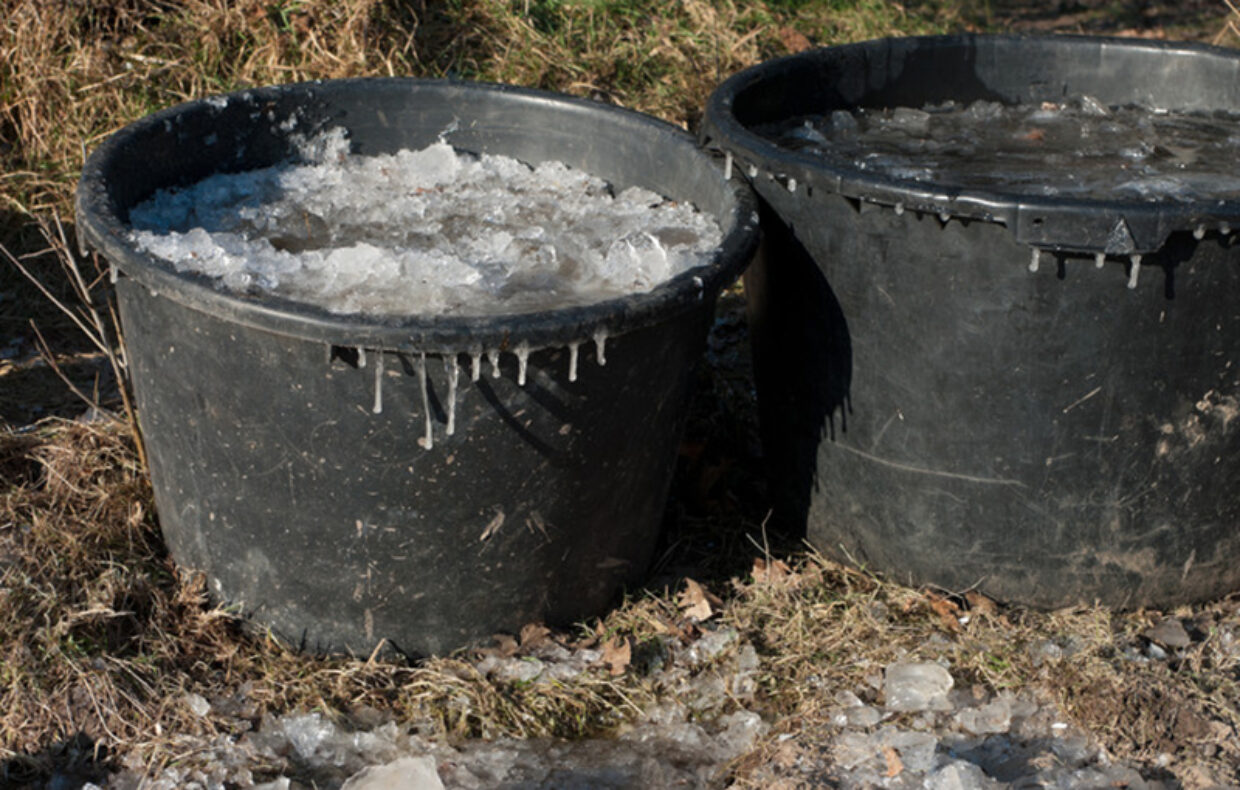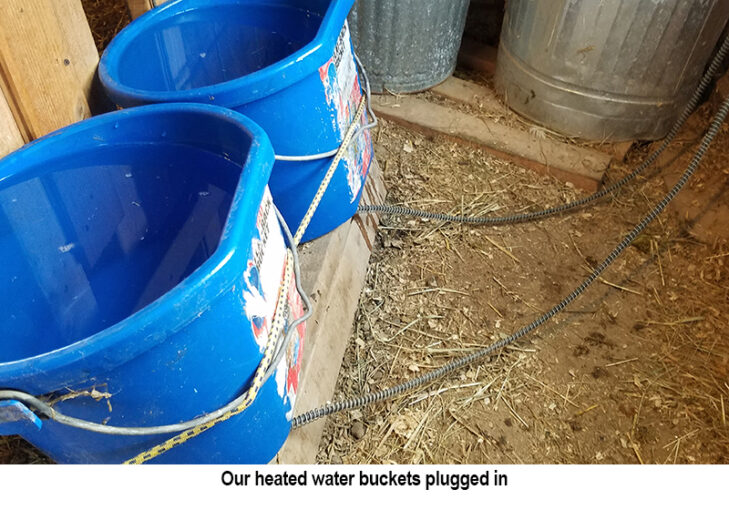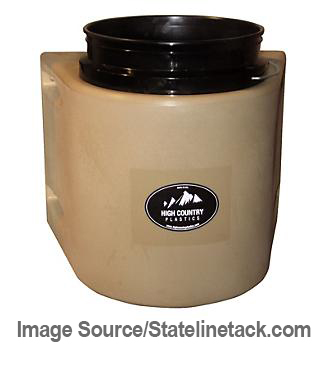How to keep livestock water from freezing

Winters in New England can be brutal. Temperatures at night are usually in the teens to below zero. There are even days when the high temperatures do not get above freezing.
What happens to water when it is that cold out?
It freezes, of course.
While I’d like to say that we had our whole farming plan sketched out before we jumped in with livestock, I’d be lying.
That’s just not my style, folks. I’m kind of a “jump in with both feet and ask questions later” kind of gal.
 The first few winters our “plan” for handling frozen water buckets was basically keeping two sets of buckets. One in the downstairs bathroom and one outside with the animals.
The first few winters our “plan” for handling frozen water buckets was basically keeping two sets of buckets. One in the downstairs bathroom and one outside with the animals.
Every morning we brought out a warm bucket of water and brought in the frozen bucket to thaw. Every evening we did the same thing.
It was a struggle! (and my bathroom was a constant mess!)
Fast forward to newly built barn and hindsight being 20/20. Enter frost free hydrant and heated water buckets.
Total time-saver…and my bathroom thanks me.
When you are starting out, having heated water buckets may not be in the cards. But there are some additional ways to help prevent water from freezing.
Insulating your water buckets.
By insulating your water buckets you help increase the amount of time it takes for your water to freeze. Eventually everything freezes when it’s really cold, but if you get a string of not so freezing days, you can extend the time between changing out buckets.
One way would be to put your water bucket inside a larger bucket and fill the space between with straw, hay or shavings as an insulator.
They also sell plastic insulated bucket holders you can place your buckets in.
If your buckets are in the sunshine, using black buckets will help utilize solar heat to help keep them warm.
Covering the water trough.
Using some type of solar cover over a portion of your water trough will utilize the sun to help keep the water from freezing. You will need a way to keep it secure. If you have animals that eat things (other than what they are supposed to eat) like we do, you will need to find a way to only give them access to the open portion of the trough. This can be done by putting it through a fence and leaving the insulated part outside the fence.
Using compost.
We have not tried this, but it makes perfect sense. Pile up compost around your buckets or trough to use the heat created from composting to keep your water from freezing. You can use old tires, place the bucket inside and fill the space up with compost.
Keep the water moving.
Unless it is truly freezing out, moving water will not freeze. Some people will keep a ball floating in a large trough. This reduces the amount of surface water that can freeze and larger animals like horses and cows will move the ball with their noses to get to the water. (The ball would have to be heavy so as to not blow away.)
Heated water bottles.
Fill plastic water bottles with hot water and place them in your water buckets. This may delay the water freezing so you would only have to switch them out twice a day or less and they are easier to lug than full buckets of water.
Lug it!
This is what we did, twice a day. It’s back breaking especially if your water source is not near your barn, but it is a temporary option to get you through. Keep filled water buckets in a warm area. Once or twice a day switch out your frozen buckets with the warmed buckets. Thaw out the frozen buckets and repeat.
Commercial Heaters
 There are plenty of commercial products on the market including insulated water bucket covers, submergible electric heaters and heated flat back buckets.
There are plenty of commercial products on the market including insulated water bucket covers, submergible electric heaters and heated flat back buckets.
The options and prices are almost endless so you’re sure to find something that meets your needs and budget.
You may find that using a combination of methods bears out the desired results, as well. If there is a small amount of ice on top of the water, break it and remove it completely. This, in combination of one or more methods above will extend the life of your water.